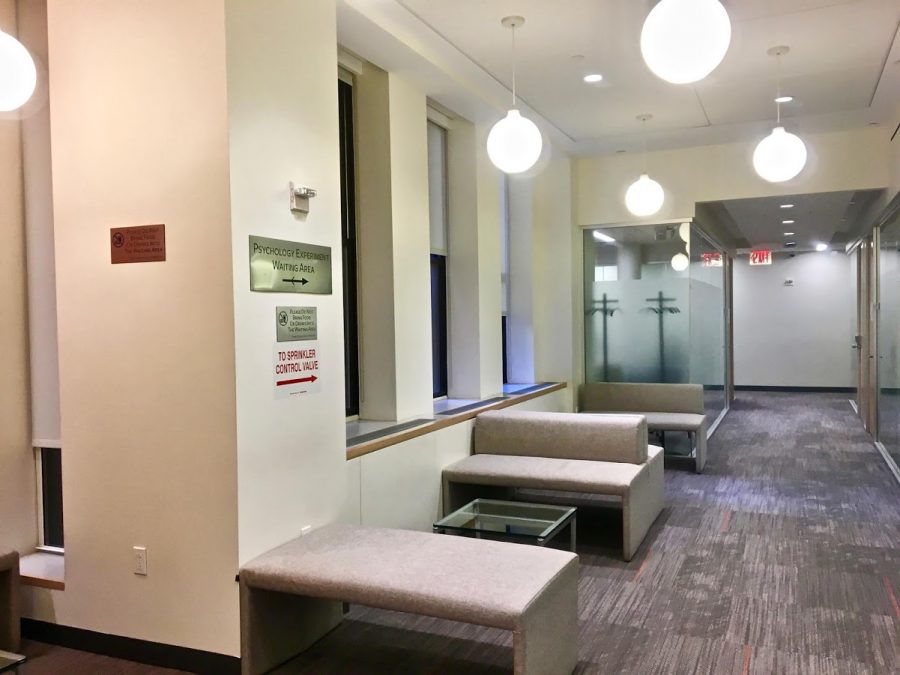An Inside Look at University Research Studies
NYU students are participating in psychology studies to earn some extra cash. Most of these studies take place in Meyer Hall at 4 Washington Place, NYU’s main psychology building.
March 20, 2017
No matter what university you attend, you’re sure to find a barrage of research study advertisements plastered on bulletin boards and lamp posts around campus. These advertisements promise cash, gift cards and other incentives in exchange for student participation, a trade-off that begs the question — what do they actually require you to do?
NYU sophomores Kiran Khatau and Halsey Hazzard both participated in a year-long study with the Suzuki Laboratory, a research program run by Professor of Neural Science and Psychology Dr. Wendy Suzuki and Dr. Julia Basso.
In the Suzuki research study, participants were not permitted to exercise during the first semester for baseline data which is, for many of us, easy enough. Then participants were required to exercise three times a week throughout the second semester, a far more daunting task. The experiment measured the effect of exercise on academic performance, memory and basic cognitive functions.
But Khatau, a psychology major, quickly learned that committing to a long-term study might not be as simple as initially expected. Khatau was forced to drop out of the study to ensure the integrity of the data after a severe case of the flu prevented her from exercising as much as the study required during the second semester. To add insult to injury — or sickness — Khatau had been focusing on strength training when the lab wanted participants to exercise aerobically.
“A lot of times in research studies that are long-term, they want you to change something about your normal routine and it’s always surprising how difficult it is,” Khatau said.
On the other hand, Hazzard was able to complete the study and while it was more intense than she expected, she found the experience beneficial.
“It did kind of get me thinking about budgeting time for it [exercise] and I feel like I contributed to something scientific so that was nice,” Hazzard said.
NYU is among the top 25 research universities in the nation, according to a 2013 annual report by The Center for Measuring University Performance. Yet, many students’ perception of university research studies don’t match their reality.
“I feel like people joke a lot about going in and doing something weird and then getting $10, the stereotype of broke college students doing it for money,” Hazzard said. “I’ve kind of realized that this is actually legitimate and applicable scientific research.”
However, research studies aren’t always boring. Sometimes, students can find themselves in wacky situations in the name of science.
Khatau recalled a recent study where she was hooked up to electrodes that measured her brain’s electrical activity as she was asked to look at pictures of faces and distinguish the “good” from the “bad.”
“It was exactly how you would imagine in the movies, wires just everywhere,” Khatau said. “I never thought I would be getting hooked up on a Sunday morning with electrodes.”
Email Laura Rubio at [email protected].
























































































































































